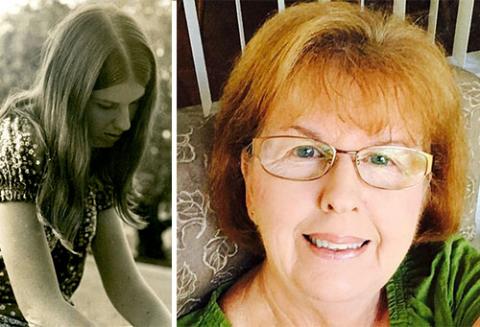Alumni Highlight: Vera Gorman Gray

As a child during the 1950s and 1960s, Vera Gorman Gray witnessed first-hand the strong wave of social and political change including the civil rights movement, peace movement, and women’s rights movement. Her family watched it all live on television as they sat down to their evening meal each night. Her lessons on being an active citizen began early. Her parents discussed the issues openly with Vera and her two siblings.
“It was very obvious to me that they cared about others and the future of our country,” Vera remembered. “My dad was involved in labor unions through his work life, and my mom assisted her African-American coworkers during riots in the Miami area. She later made soft sculptured dolls for children in crises nurseries. And my older brother attended war protest events.”
She participated in service clubs and volunteer work through high school. Through her family, Vera learned that making a difference was an expectation, a civic duty and a necessity for the well-being of all. She noted that to participate in the social action of this period required heart, commitment, training, and persistence.
“I learned the value of helping others from my parents and had an overpowering desire to save my piece of the world,” Vera reminisced.
Vera began studying sociology and psychology, but a beloved professor and mentor, who was also a Holocaust survivor, thought social work would appeal to her and gave her the encouragement to pursue it. Social work proved to be a natural fit for Vera, despite a great deal of stress and challenges that came with the profession. The inclination required in social work to accept people as they are, to see the big picture, and to emphasize strengths, suited Vera.
After two years at Miami Dade Community College, Vera was on her way to Florida State University in 1971, working toward her bachelor’s degree in social welfare at the School of Social Work. Her classes were in the Bellamy Building at the center of campus, and Landis Green was alive with protesters, activists, religious groups, and hippies. Vera was loving being a part of all this activity, spreading her wings and living so far from home. She recalled with fondness both the high points and the challenges of her program and coursework, all of which made an impact on her career down the road.
“My least favorite course was social policy. But it was something I put to good use throughout my career,” she recollected. “My favorite class was called “Man and Society,” taught by Dr. J.P. Love, where she met her husband of forty-six years.”
She completed her internship with the equivalent of the Department of Children and Families working with recipients of aid to dependent children, old age assistance, and aid to the disabled. Vera made a lot of home visits to her clients in her beat-up Ford Pinto.
After graduation in 1973, she and her husband Lawrence Gray moved to Daytona Beach where she worked as a medical social worker at Halifax Hospital Medical Center. After they saved enough money, they returned to Tallahassee so that Vera could complete her Master in Social Work at FSU. She learned to value caution, common sense, people skills, and documentation – often a lifeline for clients.
After graduating in 1977 with her MSW, Vera spent four decades working in a variety of setting as they were an Air Force family. She noticed that her social work skills were transferrable to any setting and that a little reading and research filled in the blanks. She spent the majority of her 42-year career working in healthcare in hospitals with a variety of clients. She was a licensed clinical social worker in both Florida and Arizona. In all of her professional settings, Vera provided counseling, group work, and community organizing. She also wrote a lot of agency policy, finding that policy course from her school days incredibly useful.
She was a clinical instructor at the University of Central Florida School of Social Work for four years and an adjunct instructor for nine years, utilizing what she learned at FSU – how to be human, approachable, informed, and ethical. She supervised registered LCSW interns for 15 years and spent the last eight years of her career as the Social Work Supervisor at the Florida Hospital Transplant Center. Vera retired in 2014, but the life lessons from her career in social work have stuck with her.
“I am very grateful that I had such an inspiring, challenging, and fulfilling career. I am humbled by the resilience and strength of my clients I served,” Vera stressed. “Compassion fatigue is a very real thing. It can sneak up on you slowly. I worked hard to set healthy boundaries, and to take time for myself and my family. At times I became discouraged, but then a client would do something miraculous, would work so hard, would overcome so much that I decided that if they can do it, so can I!”
In her retirement, Vera continues to live by and pass on the value of helping others and making a difference to her grandchildren, through volunteer work, and being politically outspoken. She travels the world and enjoys painting to “reflect the beauty of this world.”
